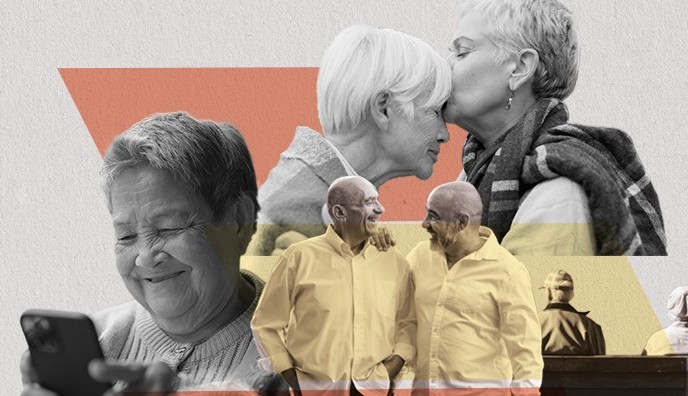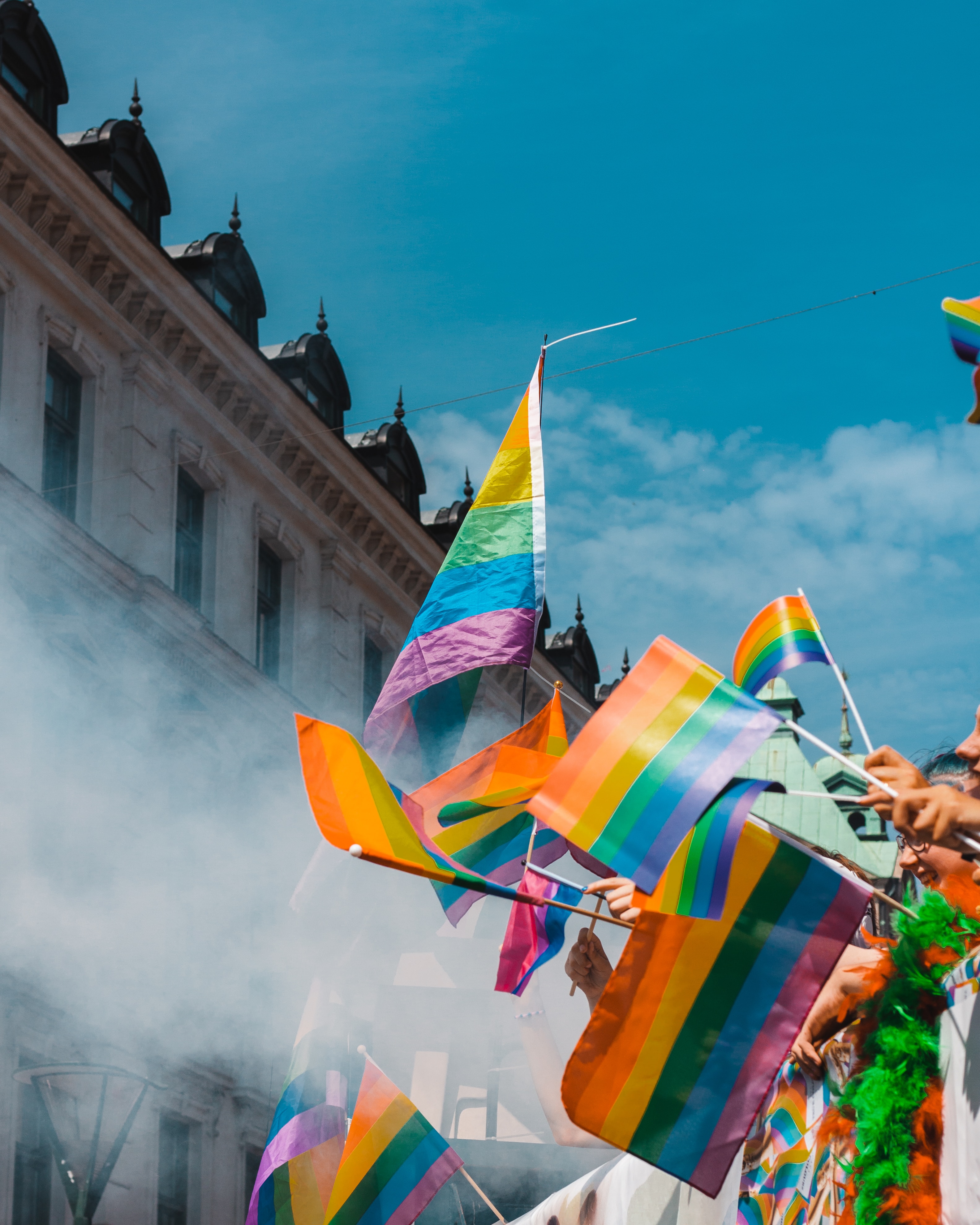Half of the Canadian population identifies as an ally to LGBTQ+ communities (Fondation Émergence, 2025). But what does it really mean to be an ally?
An ally is someone who stands in solidarity with a marginalized group to which they do not belong. In the context of sexual and gender diversity, the term refers to someone who supports LGBTQ+ people and their fight for full equality. It is also possible for someone from one marginalized group to support the struggles of another group. The term “ally” can also apply to organizations (Fondation Émergence Glossary).
As noted by the Vitrine linguistique du Québec, “an ally establishes and maintains a long-term relationship with members of a group based on trust and solidarity. They learn about the specific needs and challenges of that group, speak up or create space for the group to speak out to defend its rights or denounce discrimination.”
Where does the word “ally” come from?
Originally, the word “ally” described a person or a group joining forces with others to reach a common goal. It has long been used in military and diplomatic contexts.
In human rights struggles, the word has taken onnew meaning. The use of the term “ally” can be traced back to the U.S. civilrights movement. In 1963, Martin Luther King Jr. had already spoken about the role of white allies standing with Black communities in their fight for equality.
For instance, he used the term in a 1964 interview with U.S. News:
« Q: Have you found that resistance by white people to Black demands is hardening, for example, in the form of bloc voting?
MLK: I think some of that is inevitable in a period of social transition. Many people in the North have come to realize they probably helddeeper prejudices than they were aware of. It took pressure from the Black community and their allies within the white community to bring this issue to the surface in 1963. (U.S. News interview, unofficial traduction).
Critiques of the Notion of Allyship
The concept of allyship is not without its criticisms. Some argue that being an “ally” can at times become a symbolic gesture—adopted more to feel virtuous than to engage meaningfully in the struggle.
Even with good intentions, self-identified allies may display behaviours that are unhelpful or even harmful, such as:
- Speaking over LGBTQ+ people;
- Not genuinely listening to their lived experiences;
- Rephrasing or co-opting their messages;
- Assuming they’re free from biases;
- Dismissing constructive criticism;
- Expecting LGBTQ+ people to educate them instead of seeking out information themselves.
These actions can create a sense of betrayal. Trusting someone perceived as an ally, only to be met with inappropriate questions, a breach of confidence or invalidation, can feel doubly painful.
To Be or Not to Be an Ally?
On the other hand, a rigid or overly demanding idea of what makes a “true ally” can also raise concerns.
Some people hesitate to identify as allies because the term feels too political, or because they don’t see themselves as fitting a specific mould. Others are afraid to make mistakes, be judged or fall short of expectations, e.g.:
“I don’t know all the terms.”
“I don’t always know what to say when someone makes a homophobic joke…”
Yet the visible presence of allies is vital to advancing LGBTQ+ rights and building more inclusive environments (see our article The Importance of Allies).
Expecting perfection can stifle engagement. It’s essential to value sincere, ongoing efforts—even if they’re imperfect.
Being an ally means continually learning, listening, acting and growing.
Allyship: A Journey, Not a Label
There’s often the idea that you either are or aren’t a real ally—as if allyship were a status to be earned once and for all. But it’s a journey.
Think of it as a continuum:
- Sometimes we’re unaware of LGBTQphobia.
- Sometimes we see it but don’t know how to respond.
- Sometimes we start asking questions and seeking knowledge.
- And eventually, we speak up, act and help prevent harm.
Everyone moves at their own pace. What matters is staying engaged.
Rather than asking, “Am I a real ally?” a more useful question might be: “Where am I on this path, and how can I do better?”
It’s a messy but meaningful process. And every effort counts.
The meaning of “ally” has evolved over time, and there is no single definition everyone agrees on. There are as many ways to be an ally as there are individual journeys. Ultimately, what matters is not simply calling one self an ally—but acting like one, day after day.
Instead of asking, “Am I a good enough ally?” a more helpful question might be:
“How can I become a better ally?”



